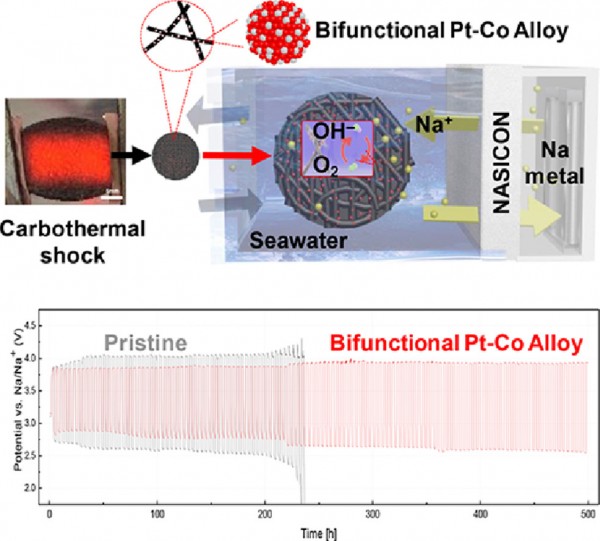Carbothermal shock-induced bifunctional Pt-Co alloy electrocatalysts for high-performance seawater batteries
- Journal
- Energy Storage Materials
- Vol
- 45
- Page
- 281-290
- Year
- 2022
Seawater batteries consisting of Na anode, Na super-ionic conductor separators, and seawater catholytes have received wide attention because of their theoretical specific capacity of 1160 mAh g−1 and cost-effective Na anode in comparison to rare-earth Li. However, large overpotential during charge and discharge caused by parasitic reactions limits their practical applications. In this work, we employ the bifunctional Pt-Co alloy electrocatalysts produced by carbothermal shock (CTS) method to improve the oxygen evolution and reduction reaction activities of seawater batteries. The CTS induced Pt-Co alloy nanoparticles are well synthesized and dispersed on a carbon current collector within a few s, resulting in improved overpotential and cycle endurance of seawater batteries compared to pristine carbon cathode. In particular, the cell can operate for over 500 h in a seawater catholyte at a fixed capacity of 0.25 mA cm−2 without significant performance degradation. Furthermore, CTS can be readily applied to large-area prismatic seawater battery cells. We observe excellent cyclability in a large-scale seawater battery, suggesting that bifunctional Pt-Co alloy electrocatalysts produced by CTS are viable for use in seawater batteries.

